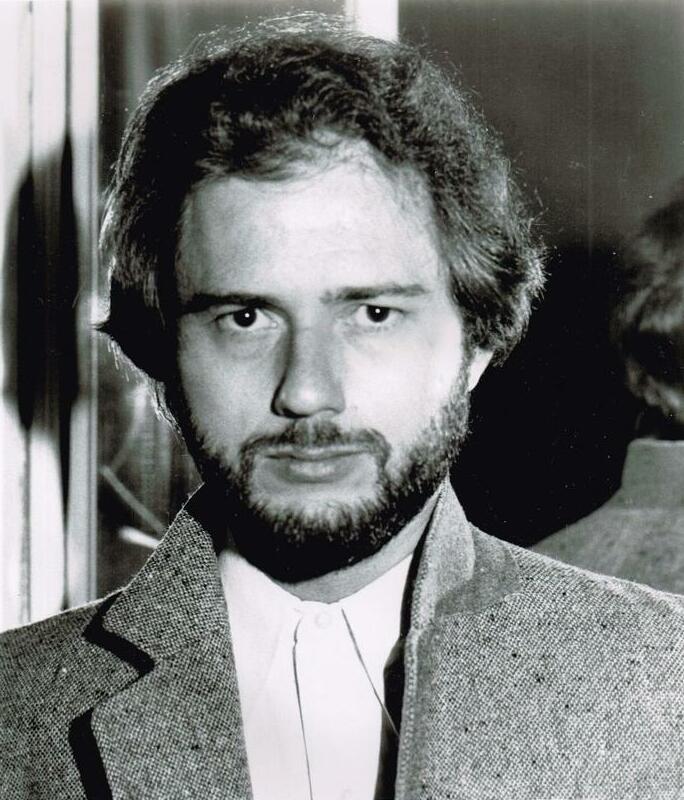Introduction
Rupert Holmes is a British-American singer-songwriter who gained fame through his #1 hit song “Escape (The Pina Colada Song)” in 1979. He started in the music business working as a session musician and songwriter/arranger for other artists, in particular for the group The Cuff Links and The Buoys (for whom he wrote a song called “Timothy” that became a hit in 1971). Holmes started his solo career with non-charting singles until he hit it big in 1979 when his single “Escape (The Pina Colada Song”) went to #1 on the Hot 100. His other single “Him” also reached the Top 10 chart. Both singles came from Holmes’ fifth album Partners in Crime, which went to #33. Holmes has had also a prolific career as a play/novel author, including adapting books “The First Wives Club” and “A Time to Kill” for the stage.
Early life
On February 24, 1947, Rupert Holmes was born David Goldstein in Cheshire, England, to an American father (a US Army officer who was stationed in the UK at the time of his birth) and an English mother. When he was six, he and his family moved to the US, permanently settling in New York City where Holmes also started his education. His parents were both musically-inclined, as well as his brother who’s an opera singer. It came as no surprise that Holmes’ career path would also be in music. He studied and majored in clarinet from the Manhattan School of Music.
Career as a session musician, songwriter and arranger
After graduating, Holmes immediately pursued a musical career. He started by working as a session musician for the group the Cuff Links and the Buoys, the latter for whom he wrote “Timothy,” which became a Top 20 pop hit in 1971. In 1970, Holmes had also co-written the eventual Top 40 hit “Jennifer Tompkins” and released it under the moniker The Street People.
Holmes’ musical resume also includes writing and arranging songs for the Platters, the Drifters, the Partridge Family and Gene Pitney.
A multifaceted artist
After the success of “Timothy,” Holmes decided to embark on his own singing career. In 1974, he released his debut album Widescreen on Epic Records, to little notice. Holmes came out with two more albums on Epic, Rupert Holmes (1975) and Singles (1976) with similar results.
In 1978, Holmes released his fourth LP Pursuit of Happiness on Private Stock label; its single “Let’s Get Crazy Tonight” was his first one to chart, at #72 on the Billboard Hot 100. But it was his fifth album Partners in Crime (1979) that Holmes finally realized the success he had long waited for. The album’s single “Escape (The Pina Colada Song)” climbed all the way to #1 on the Billboard Hot 100 singles chart. It also went to #8 on the adult contemporary singles chart. Partners in Crime‘s second single “Him” was also successful, peaking at #6 and #8 on the pop and adult contemporary singles charts, respectively. “Answering Machine” was the album’s third single which reached #32 on the pop chart.
Partners in Crime, which was released on Infinity label, became Holmes’ most successful album to date. It reached #33 on the Billboard 200 album chart.
Although subsequent albums never duplicated the success of Partners in Crime and its singles, Holmes went on to enjoy a few more minor hits such as “Morning Man,” “Blackjack,” and “I Don’t Need You” (all from his 1980 LP Adventure) as well as “Loved by the One You Love” and “The End” (both from 1981’s Full Circle).
Holmes branched out his artistic talents to the stage where he wrote several plays. His first play was the 1985 Broadway musical The Mystery of Edwin Drood (akaDrood), which went on to win a Tony Award. He has written many other plays such as Solitary Confinement and Robin and the 7 Hoods. Holmes also adapted written works such as “The First Wives Club” and “A Time to Kill” for the stage.

